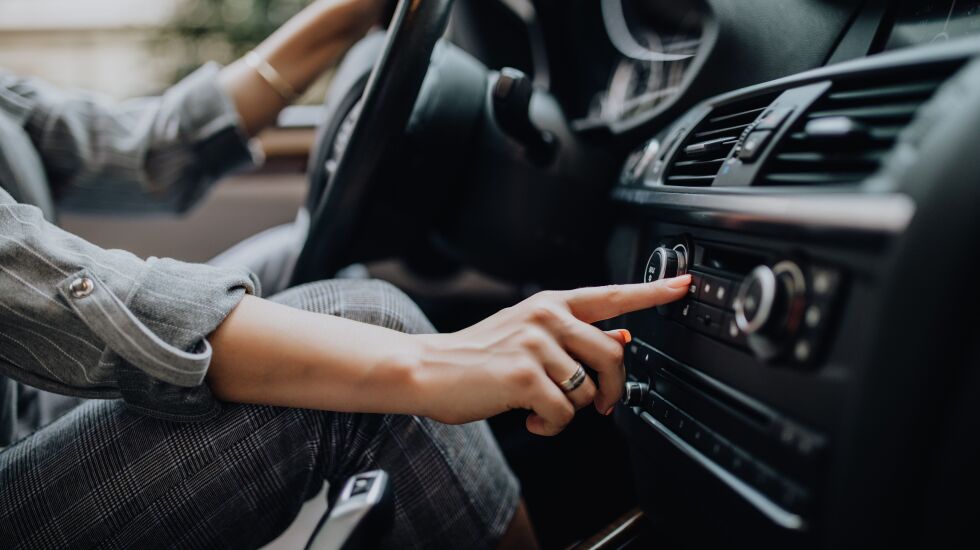
AM radio, to many Americans, is the more serious, drier option a parent or spouse switches on to catch the news, latest sports score or traffic update in the car.
Younger motorists, who subscribe to satellite radio or crank up podcasts and Spotify playlists during a road trip, might consider AM — and even FM radio — obsolete.
And families don’t really gather around an oversized, wooden radio as they did back in the day, though radio hasn’t completely gone out of style. More than 47% of U.S. adults said they got their news from the radio at least sometimes, a Pew Research Center survey found last year.
AM radio, in particular, also has a sizable following in Chicago, as the Sun-Times’ David Roeder reported this week. Of the radio audience here, 48% uses AM radio, a recent Nielsen study found.
This reality plays into the concerns that some bipartisan Washington lawmakers, as well as radio industry officials, have expressed as they push for a bill that would mandate AM radios in cars.
Automakers who have already axed or are planning to do away with AM radio in new electric cars are whittling away programming choices for consumers, supporters of the AM for Every Vehicle Act say.
Republicans may feel lost without their favorite conservative talk radio channel. Conversely, in our diverse city, progressives taking a spin could miss listening to the progressive talk station WCPT-820 AM and foreign language shows.
Yet having fewer options at the touch of a button is an annoyance at best. It is not the end of the world, and automakers who want to make sales will make as many options available as they can.
The more pressing concern, we think, is public safety.
If eliminating AM radio in vehicles can really impact how many Americans can be reached during an emergency, then auto manufacturers must invest in the simple solutions a radio engineer told Roeder could easily solve the interference issues that car companies cite.
The U.S. Federal Emergency Management Agency has equipped nearly 80 AM radio stations with backup communications equipment and power generators, allowing them to continue broadcasting information to more than 90% of the population during and after an emergency event.
FM radio, where alerts are also sent out, may have superior sound quality, but AM signals can travel further, especially at night.
And while there is no question cellphone alerts are highly effective, not everyone has a mobile phone, and severe weather can knock out service.
“When all else fails, radio stations are often the last line of communications that communities have,” former FEMA director Craig Fugate told the Wall Street Journal after he and other ex-FEMA chiefs wrote a letter to U.S. Transportation Secretary Pete Buttigieg and some congressional committees, urging them to save AM radio.
Update emergency systems
But as leaders mull over the need to mandate AM radio in cars, they shouldn’t shut out what some automakers say.
The federal government and industry must come together to “modernize” the Integrated Public Alert and Warning System, Scott Schmidt, vice president for safety policy at the Alliance for Automotive Innovation, said during Tuesday’s House Energy and Commerce subcommittee hearing on the issue.
He has a point. We no longer rely on the CONELRAD system, which used two AM radio frequencies to inform the public during the Cold War.
But until technology has improved or been updated, forfeiting AM radio in cars, as Tesla has done, and other car companies are planning to do, is a no-go.
“...The fact of the matter is, based on my conversations, that we are not currently adequately prepared to reach all Americans in the event of a disaster without the assistance of AM radio services,” U.S. Rep. Debbie Dingell, D-Mich., said at Tuesday’s hearing.
Americans spend a lot of time in their cars. AM radio should be available. Safety, especially on long trips and in more remote areas that are hard to reach, shouldn’t be optional.
The Sun-Times welcomes letters to the editor and op-eds. Here are our guidelines.







